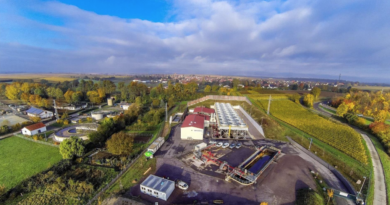EU governments fail to curb emissions from most toxic plants
Most lignite plants in the EU have waited until the very last minute to implement pollution-control technologies that were available and economically viable already 4 years ago, leaving a massive bill on people’s health and pockets, claims EEB.
17 August 2021 was the deadline for EU member states to comply with EU pollution limits for large combustion plants – the so called LCP BREF. Countries had four years to bring national industry in line with the standards they agreed on back in 2017, on the basis of the current best available techniques to prevent pollution (BATs). Yet, one day from the deadline, countries are still far from achieving what is required by the Industrial Emissions Directive.
The LCP BREF foresees emission ranges for the worst pollutants, including NOx, SO2, particulate matter and mercury, that need to be reflected in the permit limits. Whereas the lowest and less dangerous levels have been considered economically and technically viable by the industry already over 4 years ago, EEB research shows that permitting authorities and operators have, most of the time, gone for the highest legally permissible levels, releasing in the atmosphere, waters and soil tons of harmful pollutants that could have been avoided.
In many countries, authorities and lignite operators have also waited until the last minute to enforce the LCP BREF pollution standards.
In some cases, complacent public authorities have not yet updated the permits, allowing plants to emit beyond EU pollution limits, and have systematically granted derogations to allow installations to emit more than allowed. Derogations are foreseen in the Industrial Emissions Directive as exceptions, but in many countries they have become the norm.
At the same time, most countries are failing to disclose crucial information about the real environmental performance of large combustion plants, while many are not even meeting the minimum transparency requirements and are breaching reporting deadlines.
Why is it important?
LCPs burning solid fuels, and notably lignite and coal, are not only the worst climate offenders, they are also the largest source of SO2 and mercury emissions in Europe, and one of the main sources of NOx and other heavy metals. The health impacts of coal-fired LCPs are estimated at more than 16,150 premature deaths, about 7,600 extra cases of chronic bronchitis and over 4.8 million lost working days each year in the EU and Western Balkans.
The public health costs of the four years of avoidable pollution since the agreement on the LCP BREF are estimated in the table below.
| Country | Unnecessary health costs [5] |
| DE | € 12.4 billion |
| PL | € 10.8 billion (11 plants only) |
| CZ | € 8.2 billion |
| RO | € 4.3 billion |
| BG | € 3.9 billion |
| GR | € 1.7 billion |
| SI | € 0.5 billion |
| SK | € 0.4 billion |
What does EEB call for?
- Comply or close. Operators of Large Combustion Plants must now immediately implement the stricter levels of air pollution control standards, or close. Public permitting authorities should stop agreeing derogations “on demand” and use their power to enforce the most ambitious BREF limits and protect public health.
- Raise the bar. The European Commission should enforce the stricter level of current standards, while also raising the ambition to safeguard public health and the environment. We expect this to happen through the revised BAT-Conclusions due before January 2022, the ongoing EU Minamata Regulation and the IED review.
- Enter the digital age. The European Commission should overhaul EU reporting rules to enable centralised EU benchmarking and compliance promotion, to monitor industry’s environmental performance and track progress towards the EU Green Deal objectives.
National examples
- Germany is the worst EU country in making data on pollution performance of LCPs publicly available. Emission data from 2018 and 2019 is still not reported to the European Commission (breaching reporting deadline by more than one year). The Commission is not taking any action to rectify this situation.
- Poland’s Minister of Climate and Environment granted post-2021 exemptions to the Pątnów I and Konin power plants belonging to ZE PAK. Thanks to Greenpeace Poland and Frank Bold, the Administrative Court of Warsaw overturned the decision of the Ministry, which now has to reconsider the issue.




